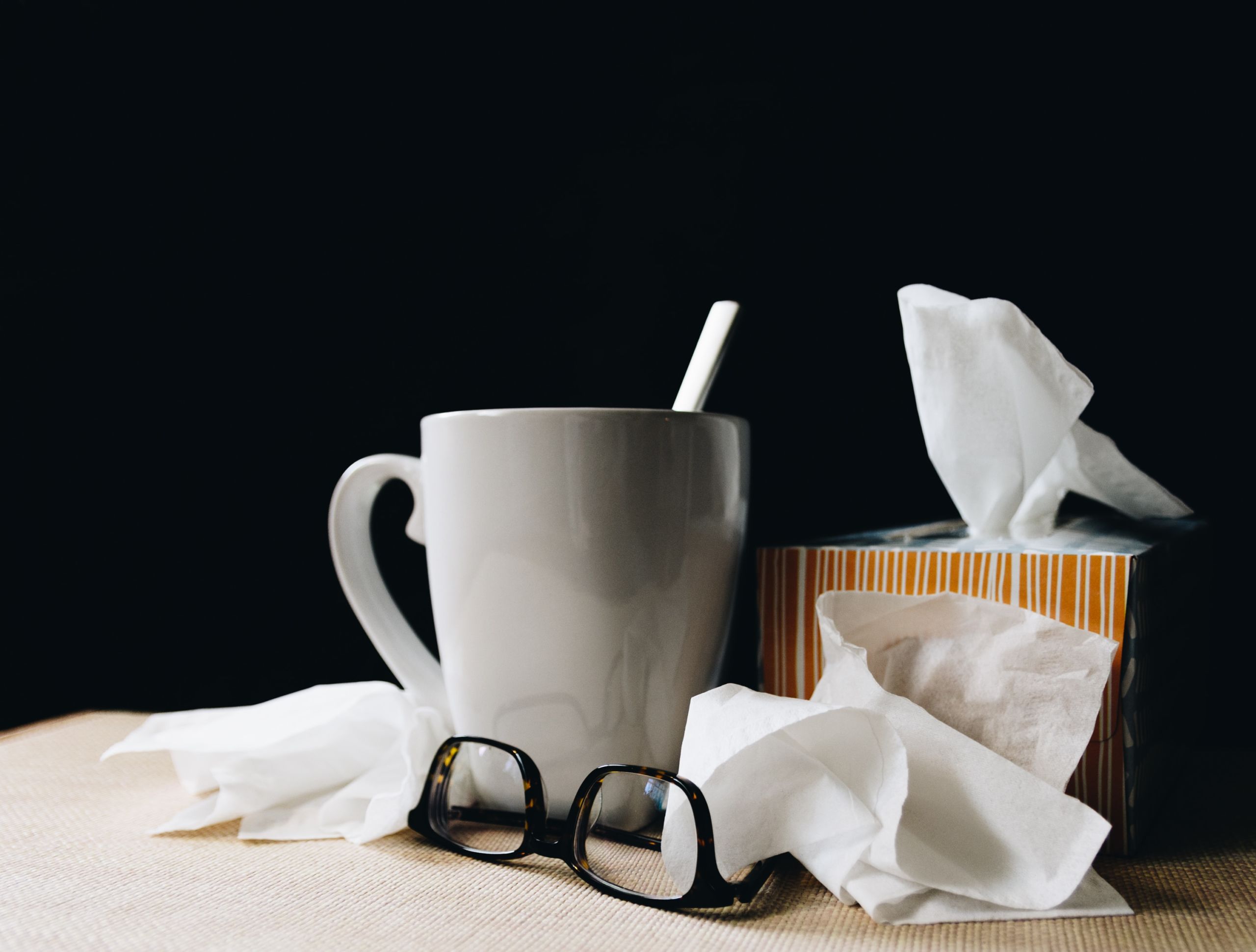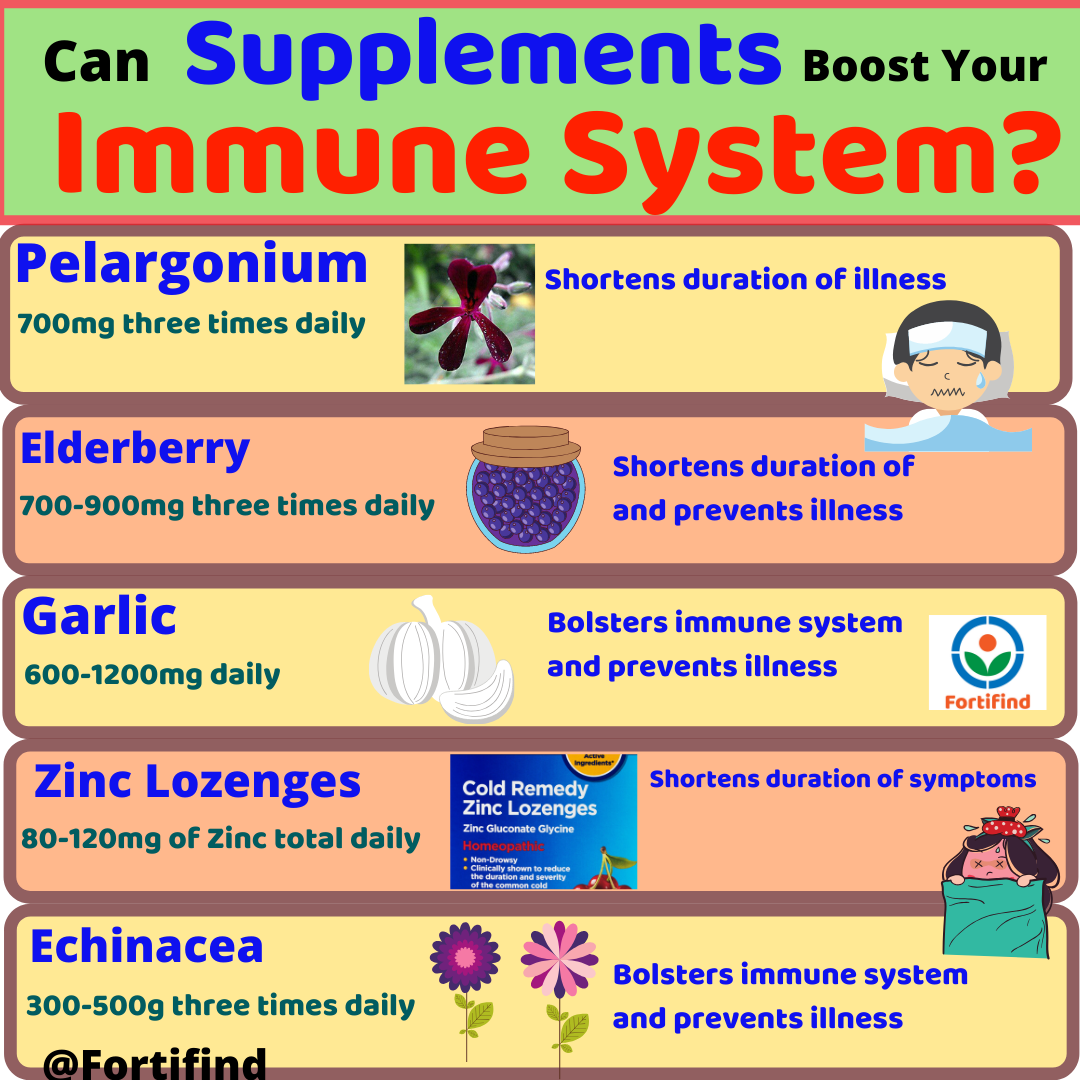Prevent Getting Sick: Supplements To Strengthen Your Immune System
Written and Clinically Verified by: Matt Marshall, PharmD.

Every year it happens. With the onset of fall there is a chill in the air and a rise in sniffles. Commercials to get your flu shot flood the radio waves and every pharmacy is out of stock of cough syrup. You’d think with all the buzz there would be more focus on the little known supplements that can help prevent you from getting sick in the first place!
What are these supplements? Do they actually help?
Worry not. In this article we are going to focus on all of the supplements on the shelf that can help you stay healthy and keep your immune system strong throughout the colder months.
Take a look at the graphic below as we guide you through each of the supplements in detail!

Garlic
Garlic helps your body fight off invaders by upgrading your immune system directly! Working to directly improve the number and the function of your lymphocytes (white blood cells), the presumption is that you’ll be able to fight off much more than vampires with taking this regularly as a supplement!
Just be aware that bolstering your immune system will only help prevent getting sick. Once you’re already experiencing symptoms, it’s probably too late for garlic to do much good outside of preventing you from getting sick the next time.
There’s good news though! If you read on, you’ll learn all about supplements you can take if you are already experiencing symptoms later in the article.
How to take:600-1200mg of garlic extract daily
If you are taking any prescription medications, be sure to talk with your doctor before supplementing this as it does have a potential to interact with certain medications, most notably:
- Oral contraceptives
- Blood thinners
- HIV medications
- Tuberculosis medications
Echinacea
Another common herb you may have heard of for boosting your immune function is Echinacea. Unlike garlic, however, Echinacea is pretty well studied to the point where even a Cochrane meta-analysis has to concede that it works pretty well to stave off illness!
Here’s what we know: Echinacea appears to be relatively effective in helping prevent the common cold, and possibly evening shortening length of symptoms slightly. Even better news? It’s a very inexpensive supplement, so if you are not taking any chances on getting sick this year, it may not be a bad idea to add this herb to your daily supplements. If you are being especially cautious, you can always double up Echinacea and garlic to pump up your immune system during the flu season.
Just be very careful if you are taking any prescription medications, as Echinacea has the possibility of a fair number of drug interactions. As always – check with the doctor before deciding this supplement is right for you.
How to take: 300-500mg three times daily. Don’t forget – it may not be a bad idea to take this supplement primarily during the flu-season months (August-April).
Vitamin C
Revered for its antioxidant effects – Vitamin C is commonly suggested to help ward off infections during flu season. While an effective antioxidant – be careful when you consider taking it to prevent any disease. In a healthy population, it has yet to show any real benefit in preventing sickness. But does appear to cut down the length of symptoms (how long you are sick for) by a modest 8-14%.
Take note if you are an athlete, or otherwise prone to regular physical exertion, however, as supplementing Vitamin C appears to prevent getting sick with a cold by almost 50%!
How to take: 1000-2000mg taken daily in 2 or more divided doses. Note that while many different types of Vitamin C are available to purchase – none have been shown to be any more effective than one another.
As Vitamin C can also interact with medications, be sure to speak with your doctor regarding specific medications you are taking. The most common interactions with Vitamin C tend to be with antibiotics, vitamins, and antacids. Since these interactions come about as a result of competition for absorption, simply space out taking your Vitamin C from other supplements or above mentioned medications by a couple hours.
Pelargonium Sidoides
Also known as South African Geranium, or Umckaloabo, this amazing plant boasts some of the most impressive disease-fighting data we’ve ever seen! It works primarily by decreasing the ability of bacteria and other foreign invaders to stick to your body’s cells – whilst bolstering the infection-fighting prowess of your body’s immune system. It is so effective in fact, that it’s approved as a medication in Germany for acute bronchitis. In the words of one study: Umcka uses a three-pronged approach. By boosting macrophage (immune) function, inhibiting attachment of viruses AND bacteria to the mucous membranes of the respiratory tract, and by acting as an expectorant (sort of like an herbal Mucinex), Pelargonium keeps acute bronchitis at bay and shortens the duration of symptoms. Additionally – Pelargonium has demonstrated the ability to inhibit replication of viral strains such as the flu and human coronavirus, making it an ideal choice to keep in the medicine cabinet around flu season!
Evidently possessing both antiviral and antibacterial characteristics, this herbal remedy is incredibly unique for its apparently curative effects. Taking this at the onset of bronchitis or cold-like symptoms such as a hoarse, dry cough appears to decrease the length of sickness, indicating an amazing ability to help your body fight off the illness.
How to take it: As pelargonium extracts appear to vary depending on the manufacturer – follow the directions on the packaging closely. Start taking it when symptoms appear, making sure to take it all the way up until symptoms dissipate for good.
Zinc
Another potent vitamin for decreasing severity and length of symptoms, Zinc appears to be most effective when taken in lozenge form. This is likely because the local effect of Zinc is better able to consistently reach the affected throat tissues when being sucked on.
How to take: Start using the lozenges (up to 80-120mg of zinc daily total) as soon as symptoms appear, stopping either after 1 week of use or immediately after symptoms go away – whichever happens sooner. Prolonged use can cause more harm than help by irritating the sensitive gastrointestinal tissues.
Like Vitamin C – avoid taking Zinc within a couple hours of vitamins, antacids, or antibiotics.
Elderberry
This miraculous berry boasts the dual benefits of not just shortening the severity and duration of symptoms, but also preventing them outright. Multiple studies have shown benefit in rapidly clearing up flu and cold symptoms, with another study showing a reduction in symptoms and overall illness when taken as a preventative measure by air-travelers.
How to take: Take 700-900mg three times daily. If taking to shorten illness duration, begin use as soon as symptoms start, continuing until symptoms abate. If using as a preventative, begin use 1 week prior to increased risk of illness (before a trip or exposure to sickness).
Credit:
Cover Photo: Photo by Kelly Sikkema on Unsplash
Resources:
Pelargonium
https://www.ncbi.nlm.nih.gov/pubmed/17184981
https://www.ncbi.nlm.nih.gov/pubmed/12807337
https://www.ncbi.nlm.nih.gov/pubmed/20070280
https://www.ncbi.nlm.nih.gov/pubmed/20197012
https://www.ncbi.nlm.nih.gov/pubmed/16781588
https://www.ncbi.nlm.nih.gov/pubmed/18222667
Elderberry
https://www.ncbi.nlm.nih.gov/pubmed/27023596
https://www.ncbi.nlm.nih.gov/pubmed/24409980
Vitamin C
https://www.ncbi.nlm.nih.gov/pubmed/28353648
https://www.ncbi.nlm.nih.gov/pubmed/23440782
https://www.ncbi.nlm.nih.gov/pubmed/30069463
Zinc Lozenges
https://www.ncbi.nlm.nih.gov/pubmed/27378206
https://www.ncbi.nlm.nih.gov/pubmed/25888289
https://www.ncbi.nlm.nih.gov/pubmed/28515951
Echinacea
https://www.ncbi.nlm.nih.gov/pubmed/17597571
https://www.ncbi.nlm.nih.gov/pubmed/24554461
Garlic
https://www.ncbi.nlm.nih.gov/pubmed/22419312
https://www.ncbi.nlm.nih.gov/pubmed/22280901
https://www.ncbi.nlm.nih.gov/pubmed/25386977










